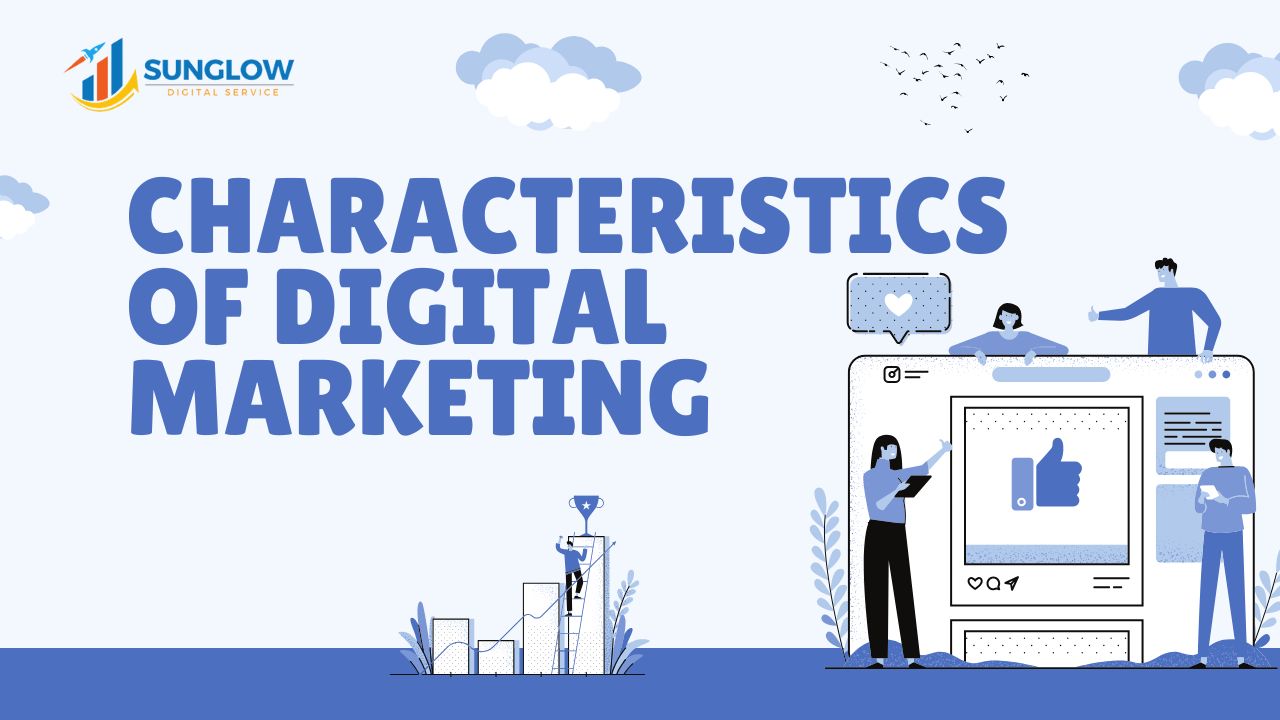Digital marketing is reshaping the way businesses interact with their audience in today’s digital-first era. With its multifaceted approach, businesses can effectively promote products and services while connecting with customers across various platforms. Below, we delve into the definition, importance, and key characteristics of digital marketing, offering a comprehensive guide to help you navigate this transformative field.
Digital marketing refers to the use of digital channels, platforms, and technologies to promote products or services. It encompasses a wide array of strategies, including search engine optimization (SEO), social media marketing, email marketing, content marketing, and pay-per-click (PPC) advertising. Unlike traditional marketing, digital marketing leverages the power of the internet to deliver personalized and measurable interactions with target audiences.
What is Digital Marketing?
Digital marketing is the use of digital channels, platforms, and technology to promote products and services. It includes a variety of methods, such as search engine optimization (SEO), social media marketing, email marketing, content marketing, and pay-per-click (PPC) advertising. Unlike traditional marketing, digital marketing uses the internet to provide targeted and measurable interactions with target consumers.
Key Components of Digital Marketing
- Search Engine Optimization (SEO): Optimizing content to rank higher on search engine results pages (SERPs).
- Content Marketing: Creating and distributing valuable, relevant content to attract and engage a target audience.
- Social Media Marketing (SMM): Using platforms like Facebook, Instagram, and LinkedIn for brand promotion and customer engagement.
- Email Marketing: Direct communication with audiences through personalized and targeted emails.
- Pay-Per-Click Advertising (PPC): Running paid campaigns on platforms like Google Ads and Bing Ads to gain immediate visibility.
Why is Digital Marketing Important?
Global Reach
Digital marketing allows businesses to transcend geographical boundaries, reaching a global audience without the limitations of physical locations. A well-executed digital campaign can target users in multiple countries simultaneously, ensuring widespread brand exposure.
Cost-Effectiveness
Compared to traditional marketing methods like TV or print ads, digital marketing is far more cost-effective. Even small businesses can compete with large corporations by utilizing affordable tools and strategies.
Measurable Results
One of the standout advantages of digital marketing is its measurability. Using tools like Google Analytics and HubSpot, businesses can track the performance of campaigns in real time, gaining insights into what works and what doesn’t.
Personalization
Digital platforms enable highly personalized marketing efforts. Through data analysis and segmentation, businesses can tailor messages and offers to specific customer segments, improving engagement and conversion rates.
Enhanced Engagement
With interactive content, live chats, and social media, digital marketing fosters real-time engagement, helping businesses build lasting relationships with customers.
Key Characteristics of Digital Marketing
- Data-Driven Approach
Digital marketing thrives on data. From understanding customer preferences to tracking campaign performance, data-driven strategies allow businesses to make informed decisions and achieve better results. - Interactivity
Unlike traditional forms of marketing, digital marketing emphasizes interaction. Customers can directly engage with brands through comments, shares, and reviews, creating two-way communication that enhances brand trust and loyalty. - Versatility
Digital marketing is highly versatile, accommodating various content types such as blogs, videos, podcasts, infographics, and webinars. This flexibility ensures businesses can cater to diverse audience preferences. - Targeted Advertising
Digital marketing platforms offer sophisticated targeting capabilities, allowing businesses to reach specific demographics, geographic locations, and even behavior-based audiences. This precision minimizes wasted resources and maximizes ROI. - Accessibility
Thanks to the Internet, businesses of all sizes can access digital marketing tools and platforms. From startups to multinational corporations, anyone can implement a digital marketing strategy tailored to their budget and goals. - Continuous Optimization
One of the unique aspects of digital marketing is its ability to be continuously optimized. Campaigns can be adjusted in real-time based on performance metrics, ensuring the best possible outcomes. - Mobile-Friendliness
With the majority of users accessing the internet through mobile devices, digital marketing strategies are designed to be mobile-friendly. This ensures seamless experiences across devices and platforms. - Cost Efficiency
Digital marketing campaigns can be executed at a fraction of the cost of traditional advertising methods. This accessibility makes it an ideal choice for small and medium-sized businesses. - Real-Time Analytics
The ability to access analytics in real-time is a game-changer. Metrics such as click-through rates, conversion rates, and audience demographics provide actionable insights that drive strategic decisions. - High ROI
Digital marketing often delivers a higher return on investment (ROI) compared to traditional marketing channels. With proper strategy and execution, businesses can achieve significant growth with minimal expenditure.
Also Check: Understanding the digital marketing process
Future of Digital Marketing
The digital marketing landscape is ever-evolving, with emerging technologies like artificial intelligence (AI), machine learning, and blockchain paving the way for new opportunities. Staying ahead of trends and adopting innovative strategies will be key for businesses aiming to remain competitive in the digital space.
FAQs on Characteristics of Digital Marketing
How does digital marketing differ from traditional marketing?
Digital marketing uses online platforms and technologies to reach and engage audiences, allowing for precise targeting and real-time analytics. Traditional marketing, on the other hand, relies on offline methods like print ads, TV commercials, and billboards, which are less interactive and harder to measure.
How does SEO contribute to digital marketing?
SEO (Search Engine Optimization) improves a website’s visibility on search engines by optimizing content and structure. Higher rankings increase organic traffic, brand credibility, and overall online presence.
Can small businesses benefit from digital marketing?
Yes, digital marketing is highly cost-effective and accessible for small businesses. It allows them to compete with larger companies by leveraging targeted ads, social media platforms, and affordable tools to reach potential customers.
What is the role of social media in digital marketing?
Social media platforms like Facebook, Instagram, LinkedIn, and Twitter enable businesses to build brand awareness, engage with audiences, and drive website traffic. Paid ads on these platforms also offer precise targeting for better ROI.

